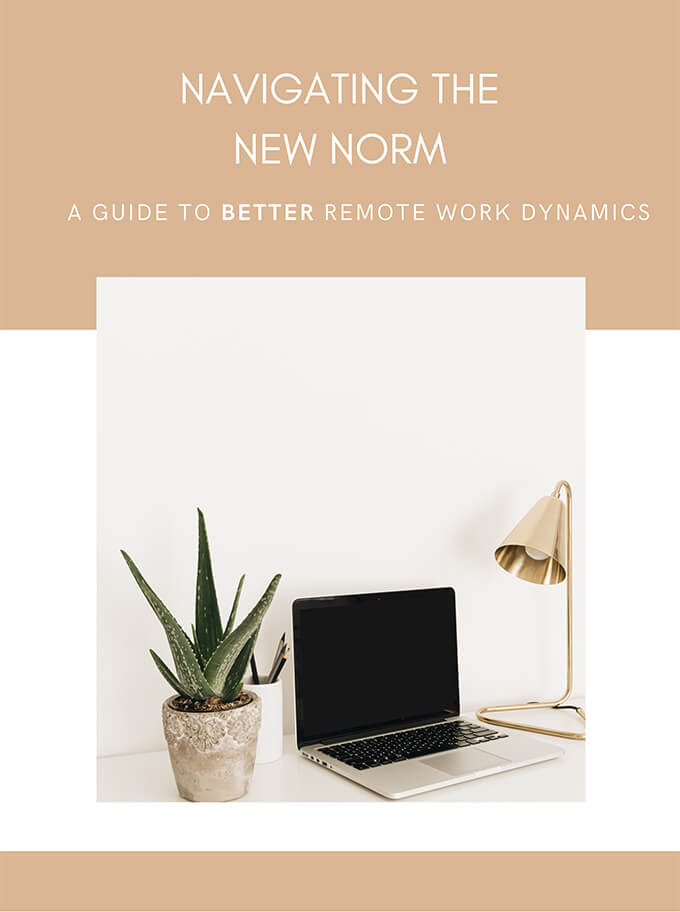
The Predictability of Working From Home
Remote work — once viewed as a temporary solution — is becoming more of a permanent fixture for many post pandemic. Still, there are those who are pushing for employees to move back into the office. Despite the proven success of remote work, some employers argue that in-person work is essential for collaboration, innovation and company culture. A notable voice in this debate is Tech Investor, Elon Musk who has taken a very vocal stance about moving employees out of their homes and back into the office. This stance has faced substantial backlash. Why? Over the past two or so years, employees have built their life around remote work. It is a preference rooted in their deep appreciation for the predictability it brings to their daily routines and the substantial investments they have made in creating an ideal and conducive work environment. Within this blog, we examine the reasons behind the strong preference for remote work among employees.
The Allure of Predictability
Humans are creatures of routine. Routines reduce stress and anxiety, and give more time to actually relax. When days follow a predictable pattern, it gives people a sense of comfort, stability and control. Straying from well-trodden routines can bring unforeseen challenges and difficulties, which in turn, can leave us with a disconcerting feeling of unsteadiness.
In the realm of remote work, predictability comes in the form of planning routines and allocating time for both professional and personal activities. It gives employees a chance of achieving a more harmonious work-life balance. In an era where the boundaries between work and personal life can blur, predictability helps regain a sense of order. Remote work has significantly contributed to this desire for predictability.
A sudden shift back into in-office work, then, disrupts this carefully established balance, unsettling the new found control and routine. The commute, the fixed schedule, and the rigid environment stand in stark contrast to the personalized work routines many have cultivated. This resistance to revert to the office is not just about convenience, but about preserving the predictability that has been integrated into their daily lives.
A Life Built Around Remote Work
In Canada, lockdown started on, approximately, March 17 of 2020. Since then, employees have embraced the work-from-home lifestyle. They have made investments and created predictability in their lives that they can depend on, making this work model an indispensable component of their lives. As we transition beyond the pandemic, it's clear that remote work has left a lasting impact on personal lives.
-
Autonomy
Remote work has given employees a sense of autonomy and freedom. They get to choose where they work and how to curate a space for a more productive work environment. Oftentimes employees working remotely invest in setting up the perfect home office. They curate spaces to promote comfort and productivity, complete with dual monitor setups, ergonomic chairs, and noise cancelling headphones. Some people have carved out parts of their home to create these office spaces for work. This attention to detail not only enhances work efficiency but also reflects their commitment to remote work.
Their sense of autonomy can also be affected. By working from home, they cut costs for commutes, and even food. According to CNBC those who have returned to the office spend, on average, $51 per day and about $1,020 a month. This includes lunches, commuting, breakfasts and coffees, parking and even pet care. While, in comparison, those who continue to work from home or work hybrid schedules spend only $408. Saving more than half the cost. This significant difference in daily and monthly expenses between in-office and remote highlights the financial predictability and stability that comes with the latter.
-
Technology Investment
Employees also make strategic investments in technology that empower them to be productive from home. These investments encompass a range of tools, from high-quality webcams for seamless video conferencing to necessary software solutions that facilitate remote work (much like Tracument that helps legal and medical offices to send documents securely). It's essential to recognize that not all companies or organizations are readily equipped to provide these technological resources, making these investments a significant commitment funded by employees. It is also important to note that those who do invest in technological set-ups may be wary of reverting back to older technologies used in the office which can cause more resistance to returning back in-person.
-
Scheduling Flexibility
Employees frequently structure their personal schedules to align with remote work due to the unique flexibility it provides, which traditional office settings struggle to replicate. This flexibility enables employees to customize their work hours to suit personal and professional obligations. They have tailored work hours to harmonize with personal commitments and pursuits. In many ways, remote work has blurred the line between work and personal life. Employees are finding new ways to integrate both seamlessly, allowing for moments of connection with family, friends and even pets during their workday.
On a larger scale, the ability to work remotely has revolutionized the way employees approach vacations and travel as well. They can work from various locations and destinations that aren't home. This suggests that employees are now more open to spending a bit extra, whether it's for a vacation abroad or buying a cottage to make special family memories during their time off. Consequently, when remote work is suddenly withdrawn, it's not just their sense of freedom that's at stake; it's also the financial investments they've made, which may not be recoverable. This loss can be deeply disheartening, as it not only affects their work-life balance but also the tangible commitments they've undertaken in pursuit of a more fulfilling life.
Predictability for Firms
Many firms have made significant investments in their remote work employees from equipment, to expanded mental health benefits. Some firms have even downsized their office spaces with the assumption that a significant portion of their legal professionals would continue to work from home. Why change that now?
There are many reasons why firms would ask their legal professionals to return to the office. From wanting to revive company culture to wanting a more traditional mentorship program. However, a sudden mandate can introduce challenges large and small. For firms that have reduced their space, the logistical task of recalling employees can become chaotic. Acquiring the necessary equipment both technological and not can prove to be a hassle and a strain on the yearly budget. Employees are also unlikely to transport their ergonomic chairs or their entire computer set-up from home to the office. Additionally, the investments such as training and communication software made to support legal professionals working from home may seem pointless to many now that they must return to the office.
This decision not only disrupts the work environment for employers but also creates a turbulent experience for employees who are expected to return to the office. Which in turn will disrupt productivity, the very thing firms want to promote.
Finding a Middle Ground
Understanding this desire for predictability is crucial for employers looking to ease the transition back to the office. The hesitation to return to the traditional 40-hour in-office week is not rooted in a desire to shirk responsibility or avoid work. Rather, it is driven by the very human need for predictability and control in our lives. As our work habits continue to evolve, striking a balance between structured office work and the flexibility of remote work is the key to ensuring that employees can maintain their sense of predictability while also meeting the needs of their employers.
You may also like
Happy Holidays Message from David Swadden, CEO
December 18, 2025
We would like to wish all our clients and readers a wonderful holiday season filled with joy and laughter.
Tracument Holiday Schedule
December 11, 2025
We would like to update all our clients of our Holiday Schedule this holiday season!
Tracument Wrapped!
December 4, 2025
What 2025 Looked like for Tracument and for you!




